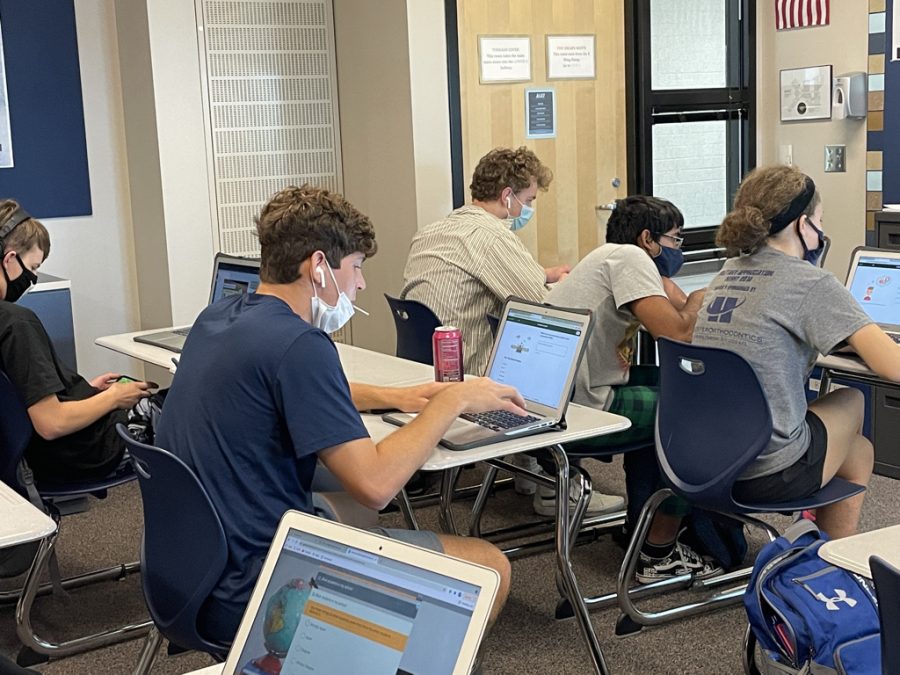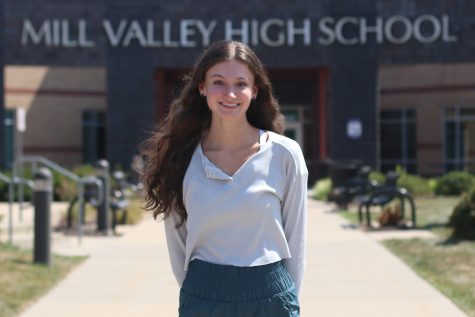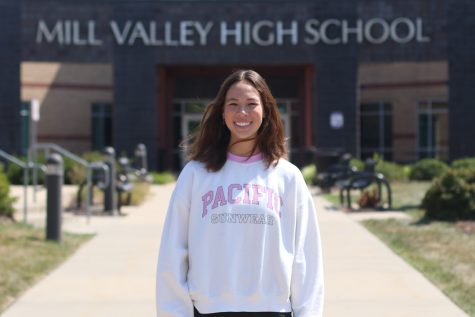Seminar changes create new benefits and challenges for students
Dr. Holder and Ms. Stringer provide insight to the changes, and students share their differing opinions.
October 20, 2021
Seminar has changed in a number of ways over the last couple years. From grouping by grade levels to social emotional learning and Xello, students have had to adapt.
One reason for curriculum changes is due to COVID-19. Superintendents in Kansas realized that some students were struggling with mental health and self-management. The state recognized these struggles, and in return, required a social emotional learning (SEL) curriculum to be taught.
Principal Dr. Gail Holder has played a crucial role in the seminar changes this year. Holder thinks that since students are having trouble with their mental health, SEL is beneficial.
“If we have a lot of students suffering from anxiety, self management, self awareness or social interaction, the state then sees [SEL] as a need.” Holder said.
Holder said that the SEL curriculum was one reason seminars were grouped by grade levels. In past years, seminars were mixed between grades.
“With that social emotional curriculum we developed, it really needed to be that… there were grade level seminars,” Holder said. “The content [of the programs] was grade-level specific.”
The SEL program was developed by seven Mill Valley and seven De Soto teachers last summer. They worked to create a curriculum that could be used in both schools, and met state requirements. This semester, teachers will work with self awareness, analyzing emotions, growth mindset, stress management, self efficacy, goal setting, and perseverance. This program will allow students to reflect and learn more about their emotional and social wellbeing, especially after a difficult year.


FACS teacher Lauren Stringer, who helped develop SEL, explains that the group thought about both students’ current and future needs.
“We created this curriculum based on what we felt was necessary for students’ social and emotional health, but also what could be valuable after high school,” Stringer said.
Although Xello lessons were part of the seminar curriculum in past years, this year the lessons are more organized for teachers and students. When it comes to the Xello curriculum, students and staff at Mill Valley have differing opinions.
Junior Andrew Kruckmeyer thinks that Xello is not beneficial since he already has a plan for after high school.
“I don’t think Xello matters too much,” Kruckmeyer said. “I already know what I want to do, so it doesn’t benefit me a lot.”
In years past, seminar had always been the last 40 minutes of the school day. Now, it’s in the middle to accommodate students who travel between MV and the new CTEC center during the day. Kruckemeyer takes AP Computer Science Principles and Emerging Technology at the CTEC building. Because of the commute to Lenexa, Kruckmeyer, along with anyone else who has to travel for classes, would be missing part of 2nd block.
The time change also benefits students who are not taking CTEC or other off-campus classes. Senior Logan Pfeister says that she has been able to get more done with the time change.
“It makes me more productive having it in the middle of the day. It makes me more likely to do homework,” Pfeister said.
Although some students do not view seminar as beneficial, for others it is still a useful part of the day.












